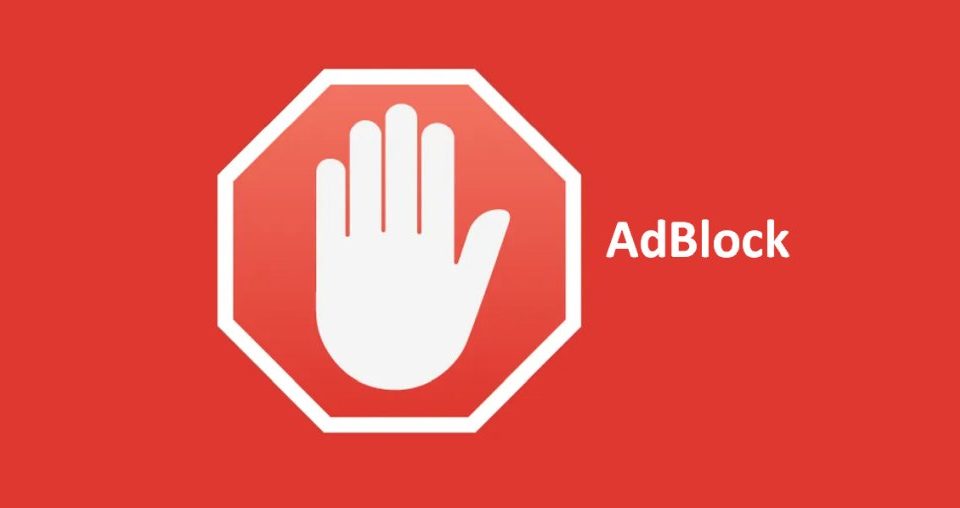
Online ads are everywhere. It’s almost impossible to find any website without some kind of ad because most online publishers depend on ads to keep the light on. But if you’re like me, I hate annoying ads. So in the early days of the web, one tiny tech startup called AdBlock decided to do something about and liberate billions of web users from the grip of intrusive online advertising. In 2002, AdBlock created the first ad blocker as an extension for the Mozilla Firefox browser.
It didn’t take long before AdBlock gained popularity and inspired the development of other ad-blocking software. By 2017, the use of ad-blocking software rose by 30% worldwide. Fast forward two decades later, ad-blockers have become an increasingly contentious and controversial issue because it impacts the online advertising industry and ethical concerns. Some publishers and advertisers also view it as a threat to their revenue streams.
Today, the use of ad blockers has sparked a debate about the ethics of online advertising. Some people argue that ad blockers are harmful to the online advertising industry, while others see them as a necessary tool to protect user privacy and avoid unwanted ads.
The Unethical Business of Ad Blockers
Over the years, ad blockers have been viewed as an “evil and unethical business” because they undermine and reduce the revenue streams of websites and online publishers who rely on advertising to fund their operations.
When users block ads, advertisers lose their ability to reach those users, which can have a negative impact on their bottom line. Adblockers also prevent online publishers from earning income through advertising, potentially jeopardizing their ability to sustain their operations.
On the other hand, some argue that adblockers are a necessary tool to protect online privacy, security, and user experience. Ads can be invasive, annoying, or even harmful, especially when they contain malicious scripts or malware. Adblockers can prevent users from being exposed to such threats and improve their overall browsing experience.
Ultimately, whether or not adblockers are ethical depends on individual perspectives and values. Some may view them as a necessary tool to protect user privacy and security, while others may see them as a threat to the financial viability of online businesses.
In 2016, TechCrunch published a piece titled, “AdBlock Plus is an extortion-based business,” in which Interactive Advertising Bureau (IAB) CEO Randall Rothenberg argues that the business model of some ad-blocking companies is essentially extortion. Rothenberg said, “I have no argument against anybody using adblockers because there is a kernel of right when it comes to the impedance of user experience,” he said. “But as I’ve said before, this is an extortion-based business and hurts publishers.”
“Ad blocking is an extortion-based business and hurts publishers,” Randall Rothenberg, IAB
Rothenberg was not alone. Forbes a piece titled: “The Ad-Blocking Industry’s Biggest Lie,” that reads:
“The ad-blocking industry is built on a business model of extortion. It’s a simple one, really: ‘Pay us, or we’ll block your ads.’ It’s not just any ads, either; it’s the ads that fund publishers, content creators and journalists. Without ads, most publishers would not exist.”
On the other hand, users argue that ad blockers are necessary because they protect their privacy and prevent intrusive and annoying ads from disrupting their browsing experience. Some ads can be malicious, contain malware, or track user data without their consent. By blocking these ads, users can protect themselves from these risks.
Overall, the debate over ad blockers is complex and multifaceted, with valid arguments on both sides. While some may view ad blockers as “evil,” others see them as a necessary tool to protect user privacy and improve the browsing experience. This leads to the next discussion about why the search giant is embracing AdBlock instead of discouraging billions of its Chrome users.
Why Google is Happy You’re Using Adblock
AdBlock is the most popular browser extension on the internet with over 60 million users. It is also one of the most popular Chrome extensions with over 350 million downloads. In its early days, tech giants including Facebook’s Meta and Google tried to ban it but failed. Today, AdBlock still costs companies like Meta, Snapchat, and Google tens of billions of dollars in lost revenue every single year.
So, why would you think that these companies would be strongly against AdBlock while Google is encouraging billions of web users to use it? To answer this question, you first have to look at Google’s entire business. As of 2022, advertising remained the main revenue-generating segment for Google, when 80.2% of Google’s $224.47 billion revenue came from advertising on Google properties and YouTube.
The fact is that Google embraces AdBlock ads and still allows AdBlock extension software to be downloaded directly from the Chrome Webstore. The search giant even promotes AdBlock on its Chrome Web Store. In 2013, Google even saved an estimated $887 million by paying Adblock Plus to show its ads.
On the surface, this may be confusing. However, Google’s decision to embrace AdBlock aligns with its long-term objectives to maintain the lion’s share of the browser market, search dominance, and monopoly. As of February 2023, Chrome has 65.76% of the browser market while Microsoft Edge only has 4.2%.
Although Microsoft has been trying to encourage people to use its Bing search engine, that’s only possible if users actually use Edge browser or directly go to Bing.com when they’re using Chrome browser. Despite the fact that AdBlock may cause Google to lose revenue in the short term, it is anticipated to improve user engagement and retention by eliminating intrusive ads.
In addition, the user of ad blockers also helps Google with targeting the right audience by eliminating users who don’t really want to see annoying ads, which also saves advertisers in advertising costs. This, in turn, provides Google with more data collection opportunities and enables it to create less intrusive and more effective advertisements in the future. Furthermore, AdBlock can assist in enhancing Google’s ad statistics by increasing click-through rates, conversion rates, and revenue for advertisers.
This video below goes into greater detail to provide an explanation for why Google still permits AdBlock, despite being the largest advertising firm in the world.
[embedded content]
- SEO Powered Content & PR Distribution. Get Amplified Today.
- Platoblockchain. Web3 Metaverse Intelligence. Knowledge Amplified. Access Here.
- Source: https://techstartups.com/2023/03/18/the-unethical-business-of-ad-blockers-and-why-google-is-happy-youre-using-adblock/
- :is
- 2%
- 2016
- 2017
- 2022
- 2023
- 7
- a
- ability
- About
- actually
- Ad
- addition
- Ads
- advertisers
- Advertising
- against
- Aligns
- allows
- alone
- and
- answer
- Anticipated
- ARE
- argue
- Argues
- argument
- arguments
- AS
- assist
- At
- audience
- Ban
- BE
- because
- become
- before
- being
- below
- Biggest
- billions
- Bing
- Block
- blocking
- Both Sides
- Bottom
- browser
- Browsing
- built
- Bureau
- business
- business model
- businesses
- by
- called
- CAN
- Cause
- ceo
- Chrome
- chrome browser
- collection
- COM
- Companies
- complex
- Concerns
- confusing
- consent
- content
- content creators
- controversial
- Conversion
- Costs
- create
- created
- creators
- data
- Days
- debate
- decades
- decided
- decision
- depends
- Despite
- detail
- Development
- directly
- discussion
- dollars
- Dominance
- Dont
- downloads
- Early
- Earning
- Edge
- Effective
- either
- eliminating
- embedded
- embrace
- Embraces
- embracing
- enables
- encourage
- encouraging
- engagement
- Engine
- enhancing
- Entire
- especially
- essentially
- estimated
- ethical
- ethics
- Even
- Every
- experience
- explanation
- exposed
- extension
- extensions
- extortion
- Failed
- FAST
- February
- financial
- Find
- Firefox
- Firm
- First
- For
- Forbes
- Forward
- from
- fund
- Furthermore
- future
- giant
- Go
- Goes
- Google’s
- greater
- hand
- happy
- harmful
- Have
- helps
- However
- HTML
- HTTPS
- i
- Impact
- Impacts
- impossible
- improve
- in
- Including
- Income
- increasing
- increasingly
- individual
- industry
- industry’s
- inspired
- instead
- interactive
- Internet
- issue
- IT
- ITS
- Journalists
- jpg
- Keep
- Kind
- largest
- Leads
- light
- like
- Line
- Long
- long-term
- Look
- lose
- Main
- maintain
- malware
- Market
- Meta
- Microsoft
- Microsoft Edge
- million
- model
- more
- most
- Most Popular
- Mozilla
- Mozilla Firefox
- multifaceted
- necessary
- negative
- next
- objectives
- of
- on
- ONE
- online
- online advertising
- Online Businesses
- online privacy
- Operations
- opportunities
- Other
- Others
- overall
- paying
- People
- perspectives
- piece
- plato
- Plato Data Intelligence
- PlatoData
- plus
- Popular
- popularity
- possible
- potentially
- prevent
- privacy
- Privacy and Security
- promotes
- properties
- protect
- provide
- provides
- published
- publishers
- question
- Rates
- RE
- reach
- reduce
- remained
- retention
- revenue
- risks
- ROSE
- Said
- scripts
- Search
- search engine
- security
- segment
- Share
- Short
- show
- Sides
- Simple
- single
- snapchat
- So
- Software
- some
- something
- startup
- statistics
- Still
- store
- streams
- strongly
- such
- Surface
- Take
- targeting
- tech
- tech giants
- tech startup
- TechCrunch
- that
- The
- The Future
- the world
- their
- Them
- themselves
- These
- threat
- threats
- Through
- titled
- to
- today
- tool
- track
- TURN
- Undermine
- unwanted
- us
- use
- User
- User Experience
- user privacy
- users
- Values
- viability
- Video
- View
- web
- Website
- websites
- whether
- which
- while
- WHO
- with
- without
- world
- would
- year
- years
- Your
- youtube
- zephyrnet












